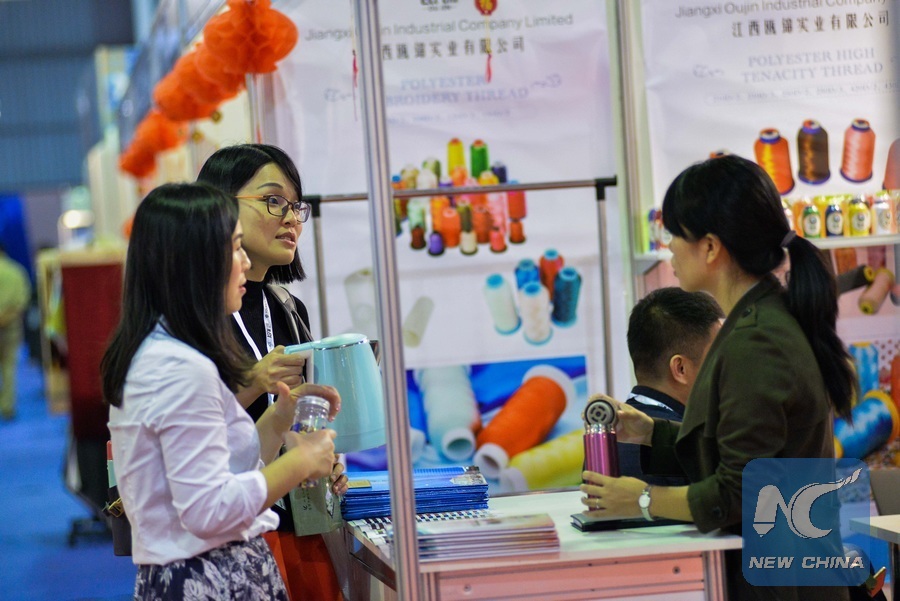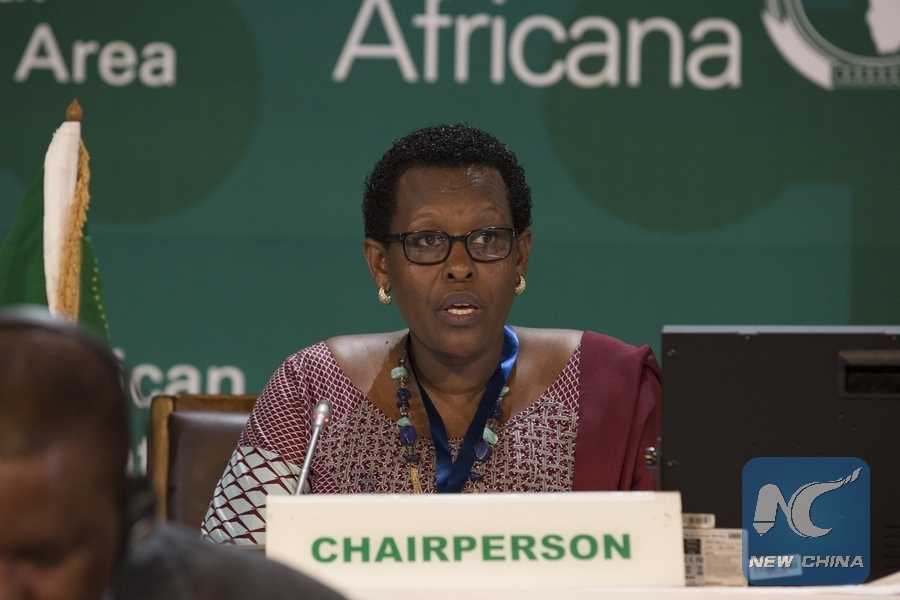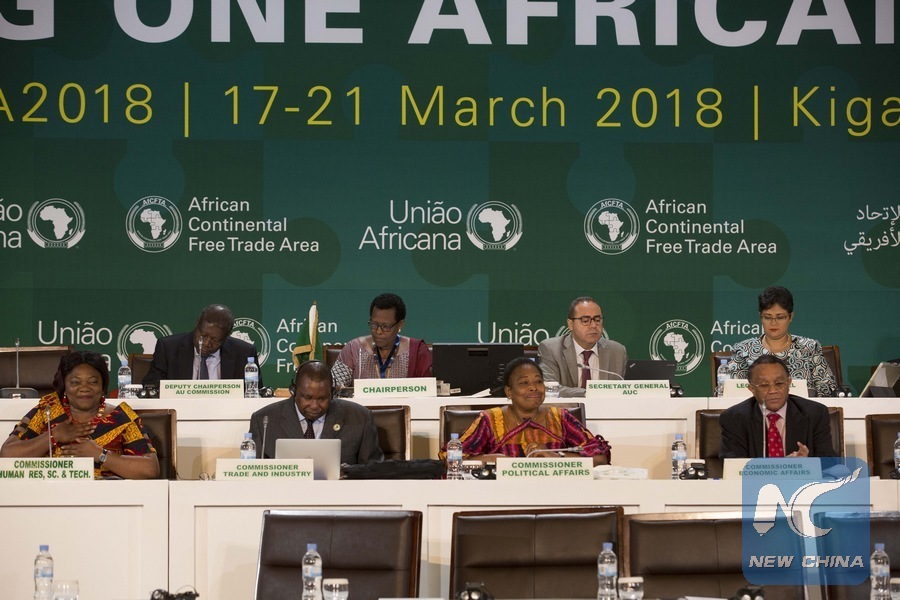
Chinese visitors attend the African Sourcing and Fashion Week in Addis Ababa, capital of Ethiopia, Oct. 3, 2017. Africa's main trade show for cotton, textile, apparel, home and technology industries kicked off here on Tuesday. The African Sourcing and Fashion Week which will last until Friday, has gathered some 230 international producers and exporters from 25 countries. (Xinhua/Michael Tewelde)
KIGALI, March 18 (Xinhua) -- The African Union (AU) is looking forward to work with China and other partners outside Africa as the continent focus on realizing the African Continental Free Trade Area (AfCFTA), an African Union (AU) official said Saturday.
The AU is expecting their continued support as it focuses on achieving economic prosperity for African citizens, Kwesi Quartey, deputy chairperson of the AU Commission, told Xinhua on the sidelines of the ongoing AU's extraordinary summit on the AfCFTA.

Hope Tumukunde, chairperson of the Permanent Representatives Committee (PRC) of the African Union (AU), speaks at a PRC meeting in Kigali, Rwanda, on March 17, 2018. African leaders are expected to sign an agreement that will launch the African Continental Free Trade Area (AfCFTA) at an extraordinary summit of the African Union (AU) kicked off here on Saturday. The summit started Saturday with a meeting of the Permanent Representatives Committee (PRC) of the AU, a preparatory meeting of the heads of state and government summit. (Xinhua/Gabriel Dusabe)
"China is one of the great partners of Africa in achieving rapid economic development on the continent," he said in Kigali, capital city of Rwanda.
African leaders are expected to sign an agreement to launch the AfCFTA at the summit, which will make Africa the largest free trade area created since the formation of the World Trade Organization, according to the AU. The AfCFTA could create an African market of over 1.2 billion people with a GDP of 2.5 trillion U.S. dollars, the pan-African bloc said.
"There is a political will and commitment in this agreement, we expect to amicably address any challenge that may arise during the implementation process," said Quartey.

Participants attend a meeting of the Permanent Representatives Committee (PRC) of the African Union (AU) in Kigali, Rwanda, on March 17, 2018. (Xinhua/Lyu Tianran)
The challenges could include protection of local industries, he said, adding that this would not be a big challenge since African leaders are committed to creating a single African market.
According to him, once the agreement is signed, it will be submitted for ratification by state parties of the agreement in accordance with their domestic laws. The agreement will enter into force 30 days after being ratified by 15 state parties.

